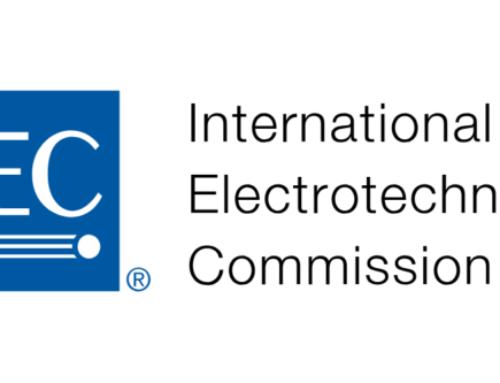The Action Plan of Implementing the National Standardization Development Outline was issued by SAMR together with other 15 ministries and national departments on July 6. The Action Plan, composed of 33 articles, specifies the key tasks to be accomplished by relevant departments and local governments by the end of 2023. It is aimed at playing the fundamental and guiding role of standardization in improving the modernization of China’s system and capacity for governance.
The main content of the Action Plan is as follows:
- Strengthen the promotion of standardization work by overall planning. Supporting policies for putting the Outline in place will be improved, and standardization will be incorporated into policies and plans on industry, region, science & technology, trade, etc. The plan of establishing the national standards system will be implemented to facilitate the high-quality development during 2021-2025. Local governments and relevant departments can formulate specific standardization development plans to boost economic and social development.
- Enhance the effective interaction between standardization and technological innovation. The linkage mechanism between major science & technology projects and standardization will be established, and the rate of standards research results achieved by the projects of common key technologies and applied science & technology plans will be counted. Standards research in the key technology fields will be strengthened in the layout of national science & technology plans, and standard will serve as a key indicator in the implementation system of science & technology plans. The projects focusing on standards research are encouraged to carry out the pilot program for preliminary review of national standards proposals. The system of standard essential patents (SEPs) will be completed, and the working mechanism of standards and intellectual property will be established.
- Raise the standards level in equipment manufacturing industry. The standards system for industrial transformation and upgrading will be improved in areas such as integration of informatization and industrialization, and intelligent manufacturing. High-end equipment manufacturing standardization projects will be carried out in key areas such as CNC machine tools, construction machinery, marine equipment, and agricultural machinery to develop and apply standards integrating high-end equipment with information technology, green and low carbon, and modern service. Standardization pilot projects will be conducted in the fields of intelligent, green and service-oriented manufacturing, to create a typical model of promoting high-end development of equipment manufacturing by standards.
- Improve the standards support of modern service industry. Standards in key areas such as smart logistics, cross-border e-commerce and overseas warehouses will be developed to improve the modern circulation system and the multimodal transport standards system. More efforts will be put into the development of national standards for digital transformation of finance, financial risk prevention and control, and financial consumer protection, to accelerate the construction of the green finance standards system. Standards for safety production and packaging management in express delivery sector will be improved, and the pilot and demonstration management system for standardization of service industry will be further enhanced.
- Improve consumer product standards continuously. The plan of improving consumer product standards will be formulated and implemented to expand domestic demands via standards. The development and revision of consumer product safety standards will be strengthened, and more standards for products of children and seniors will be developed. The food quality standards system will be completed. The development of consumer product quality grading standards will be promoted, and the research on consumer experience standards will be strengthened to accelerate the transformation from production-oriented consumer product standards to consumption-oriented ones.
- Strengthen the supporting role of standards in emerging industries. The standardization project in new industries will be carried out. According to the development trends and characteristics of industries, the plans for standards system in specific fields will be formulated to promote the development of key standards. National standards that lead the benign interaction and deep integration of the new-generation information technology and various industries will be developed. The standards system of industries regarding new materials will be continuously improved. Standards development in the field of biotechnology application will be strengthened. The development of standards for artificial intelligence medical devices, new biomedical materials, and new molecular diagnostic technologies will be accelerated to optimize the standards system for high-end and innovative medical devices. The development of digital technology standards will be strengthened to promote digital industrialization and industrial digitization. Standards on data security and data transaction will be developed to facilitate the development of the data element market.
- Promote the effective connection of standards between the upstream and downstream of the industrial chain. Standardization projects will be implemented to stabilize key industrial chains, and the standardization coordination of cross-industry and cross-domain industrial chains will be strengthened in key industries such as machinery, electronics and textiles. Standards development and application will be strengthened in key fields and products, as well as key links such as design, materials, technology, testing and application.
- Carry out a special standardization campaign on new infrastructure. More standards will be developed for the planning, design, construction, operation, and upgrading of new infrastructure such as industrial internet, internet of vehicles, energy internet and spatiotemporal information. Innovative infrastructure standards will be actively developed. Cities with a solid development foundation and prominent leading role will be selected to cultivate and apply new infrastructure standards. High-tech standardization pilot programs will be implemented to promote the development and application of integrated infrastructure standards.
- Implement the standardization improvement project on carbon peak and neutrality. The implementation plan for establishing and improving carbon peak and neutrality standards measurement system will be issued. The overall coordination role of standardization will be strengthened in various fields by the establishment of the national standardization group on carbon peak and neutrality. The basic general standards for carbon peak will be improved, and mandatory national standards for energy consumption quotas in key industries and the energy efficiency of key energy-using products will be upgraded together with supporting standards for energy accounting, testing and certification, evaluation, and auditing. Verification standards for carbon emission accounting reports will be developed for regions and key industries, enterprises and products. Greenhouse gas emission standards for key industries and products will be developed. Standards on new power system will be developed, focusing on the clean and efficient use of wind power, photovoltaics, power transmission and distribution, energy storage, hydrogen energy, nuclear power and fossil energy. Research will be conducted to develop standards for ecological carbon sinks, carbon capture, utilization and storage. The standardization pilot project of carbon peak and neutrality will be carried out. The construction and evaluation standards for green public institutions will be developed in different categories.
- Improve the standards system for ecosystem protection and restoration. Standards for ecological environment quality and risk management and control will be improved, and standards for ecological system environmental observation, environmental protection, and pollutant discharge will be developed and revised. The standards development in the fields of overall observation, protection and systematic restoration of mountains, rivers, forests, farmlands, lakes, grasslands, deserts and glaciers will be strengthened, and the standards system for meteorological guarantee services for ecological civilization, and the ecological protection and restoration of land and space will be established. Standards will be developed in areas such as biodiversity conservation and management, biosecurity assessment, ecological status monitoring and assessment, ecosystem stability assessment, ecological risk assessment and early warning, and ecosystem services. Green product standards will be improved, and the standards system for national parks, nature reserves, and ecological protection red lines will be constructed.
- Improve the standards level of economical and intensive utilization of natural resources. Unified technical standards for territorial and spatial planning and survey, registration, evaluation and monitoring of natural resource will be developed. More efforts are put into the development and revision of standards for the economical and intensive use of land resources and the management and classification of cultivated land resources. The standards development in the field of economical, intensive use and protection of water resources will be strengthened. Standards on mineral resource economical and intensive technologies, green exploration and green mining will be developed. Standards in the fields of seawater desalination and ocean energy utilization will be developed and revised.
- Carry out standardization actions for rural revitalization. The research into safety, quality, service and support standards for the entire agricultural industry chain will be conducted to build the standards system for modern agriculture. Standardization will be used to improve the rural living environment by strengthening the development of standards on rural garbage and sewage treatment, rural sanitary toilet construction and renovation, agricultural and rural infrastructure and public services, and improving related standards on construction, operation management, and supervision service. The standardization of rural governance will be promoted by developing and revising standards for rural security prevention and control. National agricultural standardization demonstration zones will be constructed, and the regional service and promotion platform for agricultural standardization will be established to consolidate and expand the standardization results of poverty alleviation.
- Improve the standards system for administrative management and social governance. Standardization actions on administrative management and social governance will be carried out to develop and revise standards in areas such as administrative licensing norms, government service improvement, national integrated government service platform, etc. The construction of standardization technical organizations on administrative management, government services and organizational governance will be promoted. Standardization pilot projects will be carried out in areas such as administrative management and government services, agency affairs services and community governance. National standards for credit system construction will be developed and revised to promote the interconnection and interoperability of credit information, and data sharing. Urban standardization actions will be taken to improve the standards system in key areas such as smart cities and sustainable urban development, and the construction of innovative cities with international standards will be strengthened. Urban standardization pilot projects will be implemented focusing on regional coordinated development, emergency response and grassroots community governance.
- Launch public safety standardization projects. An emergency management standards system will be built based on mandatory standards that adapt to all disasters and major emergencies. The development and revision of standards will be strengthened in areas such as social security, criminal law enforcement, anti-terrorism, disaster prevention and mitigation, comprehensive emergency management, pandemic prevention and treatment, food and material reserves, etc. Pilot projects for standards application will be launched. A unified and efficient public safety standardization coordination mechanism will be established to coordinate the work of multiple departments, regions and systems.
- Establish the standards system for basic public services. The development of standards for basic public services will be accelerated. The standardization of basic public services will be incorporated into regional development strategy. In the Yangtze River Delta region, the standardization management of basic public services will be fully implemented, and the standards system for basic public services will be established and improved. Standardization work such as standards development, application and evaluation will be carried out by grassroots service agencies, and a monitoring mechanism for the application of basic public service standards will be set up.
- Improve high-quality living standards. The standardization campaign for elderly care and housekeeping services will be carried out together with standardization pilot projects, to incorporate standardization into the leading action of improving the quality and expansion of domestic service industry. The publicity, implementation, supervision and inspection of mandatory national standards for service safety of nursing homes will be strengthened, and a unified national evaluation system for the service quality of elderly care institutions will be established. The development of health standards for infants and the elderly will be strengthened. The standards system will be completed in the areas of traditional Chinese medicine, sports, culture, tourism, radio, television and internet-based programs, cultural relics protection and utilization. Standards for vacation and leisure, rural tourism and homestays will be developed and applied, to support the digitization of cultural relics, archaeology, natural disaster prevention and other fields.
- Increase the participation in international standardization activities. The ability to participate in the development, conversion and application of international standards will be improved, and international standardization talents building will be strengthened to create a closer, mutually beneficial and win-win partnership on standards. China will fulfill the responsibilities and obligations as a member state of international standards organizations, actively participate in the formulation of strategic plans and organizational governance of international standards organizations such as ISO, IEC, ITU and CAC. China will also promote the development of international standards on carbon peak and neutrality, economical and intensive utilization of resources, smart cities, food safety, etc., and actively participate in international standardization activities for people’s well-being, gender equality, high-quality education, and cultural heritage protection.
- Deepen international standardization cooperation. Standards cooperation in the construction of free trade zones will be strengthened. Within the framework of the Regional Comprehensive Economic Partnership Agreement, the coordination of standards among members will be promoted. China will increase dialogues on standardization under the BRICS, APEC and other mechanisms, deepen exchanges with regional standard organizations, and strengthen standardization cooperation with Northeast Asia.
- Facilitate the compatibility of Chinese standards with international standards systems. A long- term working mechanism for the tracking and adoption of international standards will be established. The comparative analysis and adaptability verification of international standards and national standards in various fields will continue to be carried out to accelerate the adoption of advanced and applicable international standards. More foreign language versions of mandatory national standards will be published, and industries and local governments are encouraged to develop foreign language versions of standards as needed.
- Strengthen the standards connectivity in the Belt and Road Initiative. Standards cooperation will be incorporated in the Belt and Road cooperation documents. Universally applicable international standards will be applied in major projects and international scientific and technological cooperation. The national standards information platform for the BRI will be further completed to promote standard information sharing and cooperation, and mutual recognition of Chinese and foreign standards.
- Promote the coordinated development of domestic and international standardization. An international standardization working mechanism will be established, which is guided by the government, integrating production, education and research with enterprises as the main body. National standards will be gradually proposed and developed simultaneously with corresponding international standards, and the conversion and application of national standards and international standards will be Foreign-invested companies are encouraged to participate in standards development in accordance with the law. Enterprises, social organizations and research institutions are encouraged to actively participate in international professional standards organizations.And international professional standards organizations are supported to settle in China.
- Promote the coordinated development of government-led standards. The analysis of mandatory sectoral standards for safety production, public security and taxation will be made, and those comply with the scope of national standards will be transformed into national ones. The reform of voluntary national, sectoral and local standards will be implemented. The mechanisms for the management of major standard project development and revision, the adoption of association standards in voluntary national standards, and standard digitization will be improved with innovation.
- Strengthen the guidance of association standards and specifications. The opinions on the high- quality development of association standards will be formulated and implemented. Outstanding association standards and organizations developing association standards will be cultivated to promote the application of association standards. A series of national standards for association standardization good practice will be improved, and self-evaluation and self-declaration are encouraged. News media should play a role in the positive guidance and supervision of association standards.
- Improve the standardization capability of enterprises. The enterprise standards self-declaration disclosure and supervision system will play an effective role with improved public service platform to guide more companies to carry out self-declaration and disclosure through the platform. Third-party bodies are encouraged to publish the list of enterprise standard forerunners in the fields of consumer products, equipment manufacturing, emerging industries and services. Enterprises are encouraged to build a standard cooperation mechanism with research institutions and upstream and downstream industries. The work mechanism of standards comparison and compliance will be completed to promote the application of results.
- Promote the innovative development of local standardization. The local standards system structure will be optimized to improve the quality of standards supply. The standardization cooperation between provinces and ministries will be deepened to promote the in-depth reform of local standardization. Centering on the major national and regional strategies, standards will be jointly developed and applied in a coordinated way.
- Improve the coordination of quality infrastructure standards. Driven by standards, the integrated development of metrology, inspection and testing, certification and accreditation will be promoted, and the system for the integrated development of national quality infrastructure will be completed. The construction of national quality standard laboratories and national standard verification points will be promoted, and the construction of national technical standards innovation bases will be improved. The one-stop service platform for national quality infrastructure will be completed to provide full-chain technical solutions.
- Strengthen the implementation and supervision of standards. Advanced standards will be applied in the regulations and policies and the activities such as certification and accreditation, inspection and testing, government procurement and bidding. The statistical analysis of the implementation of mandatory national standards will be carried out. Policies and measures and information feedback mechanism for standards implementation will be optimized, and the third- party evaluation of standards implementation effect will be promoted. The supervision and random inspection of association standards and enterprise standards will be strengthened.
- Strengthen the construction of standardization technical support system. The construction of standardization technology organizations will be promoted in the development of new industries, new formats and new models. A liaison mechanism will be established to strengthen supervision, inspection and assessment, and promote the integration and optimization of standardization technical committees. A national digital standards library will be built to promote the construction of standards libraries at all levels.
- Support the development of standardization service industry. The standardization service market will be expanded to provide services such as retrieval and analysis, verification and evaluation, and pilot and demonstration. Government procurement of more standardization services will be encouraged to realize diversified service providers and methods. Surveys on the status quo of the industry will be conducted to study and propose the statistical plans and evaluation mechanisms for the industry.
- Strengthen the education and training of standardization talents. Standardization courses will be introduced in relevant majors, and the academic certificate + vocational skill grade certificate (1+X certificate) system will be promoted. Standardization talent training bases will be set up to increase the construction and personnel training of standardization majors at all levels.
- Improve incentive policies. Local governments should provide financial support for the implementation of important tasks in the Outline according to their financial situation. Commercial banks and financing guarantee companies are encouraged to develop standards financing and credit enhancement service products.
- Strengthen supervision and inspection. Local governments should incorporate standardization work into government performance evaluation. Standardization development evaluation pilot projects will be implemented in some regions, and the standardization statistical investigation system will be completed.
- Strengthen publicity and guidance. The significance, objectives and measures of implementing the Outline will be publicized in various forms. The interpretation of standardization policies will be released in time to improve the public’s awareness of standardization. Standardization publicity and popularization bases will be set up, and new media tools will be used to improve the accuracy and effectiveness of publicity.
Source: China Standardization Magazine, 5th issue, 2022.




